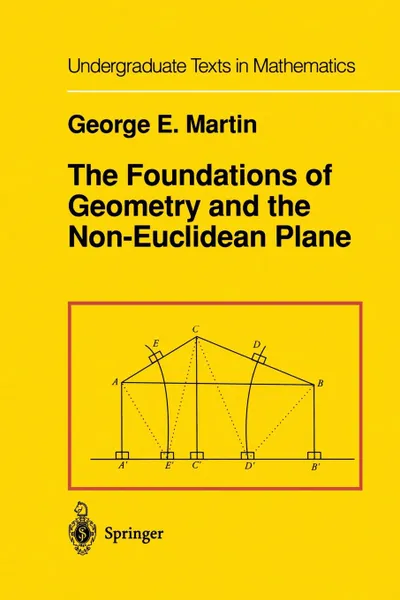The Foundations of Geometry and the Non-Euclidean Plane 12+
📓 This book is a text for junior, senior, or first-year graduate courses traditionally titled Foundations of Geometry and/or Non Euclidean Geometry. The first 29 chapters are for a semester or year course on the foundations of geometry. The remaining chap ters may then be used for either a regular course or independent study courses. Another possibility, which is also especially suited for in-service teachers of high school geometry, is to survey the the fundamentals of absolute geometry (Chapters 1 -20) very quickly and begin earnest study with the theory of parallels and isometries (Chapters 21 -30). The text is self-contained, except that the elementary calculus is assumed for some parts of the material on advanced hyperbolic geometry (Chapters 31 -34). There are over 650 exercises, 30 of which are 10-part true-or-false questions. A rigorous ruler-and-protractor axiomatic development of the Euclidean and hyperbolic planes, including the classification of the isometries of these planes, is balanced by the discussion about this development. Models, such as Taxicab Geometry, are used exten sively to illustrate theory. Historical aspects and alternatives to the selected axioms are prominent. The classical axiom systems of Euclid and Hilbert are discussed, as are axiom systems for three and four-dimensional absolute geometry and Pieri's system based on rigid motions. The text is divided into three parts. The Introduction (Chapters 1 -4) is to be read as quickly as possibl...
Мнения
